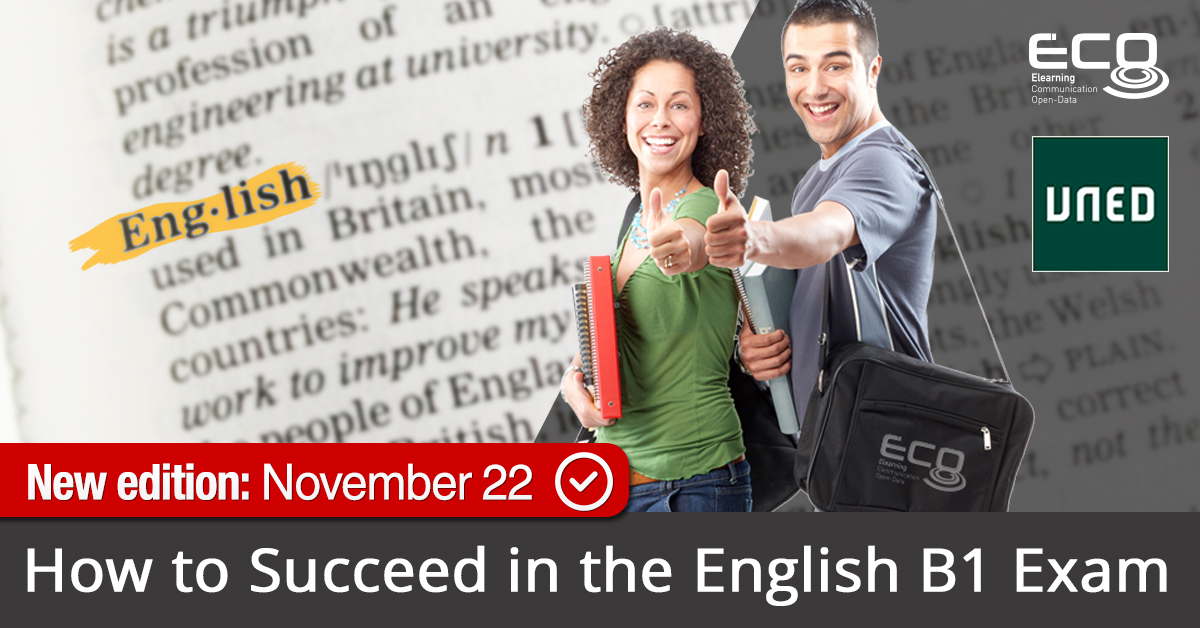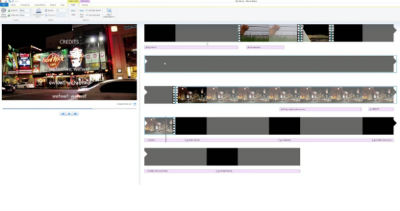
THE THIRD EDITION OF ECO MOOC “HOW TO SUCCEED IN THE ENGLISH B1 EXAM” HAS BEEN CANCELLED
A new edition of our renowned ECO MOOC “How to Succeed in the English B1 Exam” is back with news on the 22nd of November. This six-week course is aimed at learners interested in taking an English B1 Level Language test and understanding the different components of this type of exam. The course focuses on learning strategies and tips to prepare for language tests efficiently. The main goal of this free online course is to help prepare students for any English B1 Level exam, such as “Prueba libre de idiomas UNED CUID”. This standardized test comprises all linguistic skills (listening, reading, speaking and writing) and fulfills the requirements of official language accreditations, such as ACLES.
Some other important goals of the course:
- To show participants the different components of the English B1 level exam.
- To describe the assessment and marking criteria.
- To share learning strategies and tips to help students succeed in the test.
- To practice collaboratively written and oral English, creating a community of learning in which peer feedback is encouraged.
What does it mean to have a B1 Certificate in English? Having a B1 certificate in English is the key to success in many countries. While a degree and complementary courses can open doors, a B1 certificate in English can be an equally important part of your pitch for employment and further academic training. Due to the Bologna Process requisites, university students need to prove their language competence at different stages and for many purposes such as Erasmus mobility, graduating, entrance to master programmes, among others.
The MOOC starts next week but you already can enrol here. We are looking forward to seeing you aorund!


